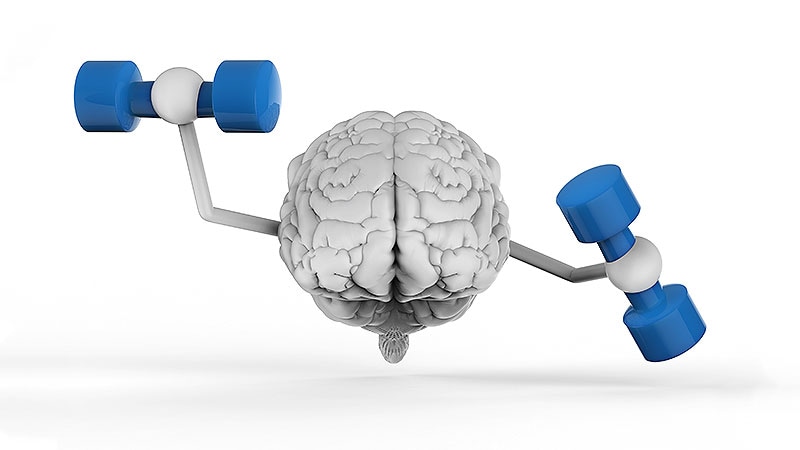Grunnleggende konsepter
Exercise's impact on cognition is complex and inconclusive.
Sammendrag
Standalone Note here
- Staying active is believed to benefit both the body and brain.
- Recent studies question the effectiveness of exercise on cognition.
- Meta-analysis by Luis Ciria highlights methodological issues in existing research.
- Adele Diamond emphasizes the importance of meaningful and engaging exercise for cognitive benefits.
- Eef Hogervorst and Ahmet Begde critique the heterogeneity and methodology of the umbrella meta-analysis.
- Art Kramer and others argue for the positive effects of exercise on cognition, especially in older adults.
- Suggestions for future research include more standardized cognitive tests and longer study durations.
- The potential benefits of mindfulness activities like Tai Chi and Taekwondo are highlighted.
- Kramer mentions the IGNITE study focusing on aerobic exercise in older adults.
- Researchers are drafting a response to the umbrella meta-analysis.
Tilpass sammendrag
Omskriv med AI
Generer sitater
Oversett kilde
Til et annet språk
Generer tankekart
fra kildeinnhold
Besøk kilde
www.medscape.com
Does Exercise Really Boost Cognition?
Statistikk
"umbrella meta-analysis of 24 prior meta-analyses"
"evidence of low statistical power"
"small benefits became even smaller after accounting for moderators"
"22 of the 24 included studies supported a strong link between exercise and cognition"
"6 weeks of resistance band exercises could improve EF, memory, and global cognitive function"
Sitater
"We’re not saying exercise doesn’t help, only that the data are sh*t." - Luis Ciria
"If you enjoy a particular activity, you care about it, you’re committed to it, you spend the time and effort necessary to get better at it — this is what’s needed to show EF benefits." - Adele Diamond
"My message to everyone we engage with is that even a little bit of exercise is better than not exercising." - Eef Hogervorst
Viktige innsikter hentet fra
by Marilynn Lar... klokken www.medscape.com 07-18-2023
https://www.medscape.com/viewarticle/994486
Dypere Spørsmål
What are the implications of removing the recommendation that exercise is good for cognition?
Removing the recommendation that exercise is good for cognition could have significant implications for public health messaging and individual behavior. It may lead to confusion among the general population, as the long-standing belief in the cognitive benefits of exercise would be challenged. Individuals may be less motivated to engage in physical activity if they no longer perceive a direct link between exercise and cognitive function. Additionally, healthcare providers and policymakers may need to reconsider their strategies for promoting physical activity as a means of improving brain health. Overall, the removal of this recommendation could potentially hinder efforts to promote healthy lifestyles and prevent cognitive decline.
How can the methodological issues in exercise and cognition studies be addressed to provide more conclusive results?
To address the methodological issues in exercise and cognition studies and provide more conclusive results, researchers can implement several strategies. Firstly, standardizing the cognitive tests used across studies can enhance comparability and reliability of findings. Establishing a gold standard battery of tests for assessing cognitive function in relation to exercise interventions would be beneficial. Additionally, researchers should ensure that exercise protocols are challenging yet feasible to prevent dropouts and ensure participant compliance. Collaborating with exercise psychologists and using a multidisciplinary approach can help design more effective studies. Furthermore, conducting longer-term studies, particularly in older adults, and including diverse populations in research can provide a more comprehensive understanding of the effects of exercise on cognitive function.
How might the findings of this research impact public health recommendations regarding exercise and cognitive function?
The findings of research on exercise and cognitive function could have implications for public health recommendations. If the research consistently demonstrates that exercise has limited effects on cognition, public health recommendations may need to be revised to reflect these findings. Recommendations may shift towards emphasizing other lifestyle factors or interventions that have a more significant impact on cognitive health. However, if the research continues to show some benefits of exercise on cognitive function, albeit small, public health messages may focus on the importance of incorporating physical activity into daily routines for overall brain health. Regardless of the outcomes, it is essential for public health recommendations to be evidence-based and reflect the current understanding of the relationship between exercise and cognitive function.
0
